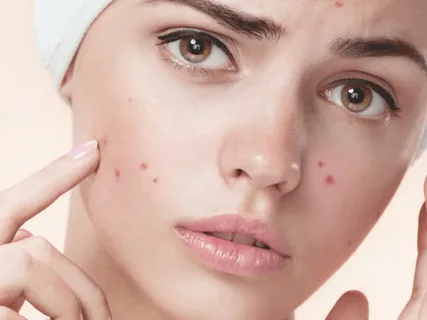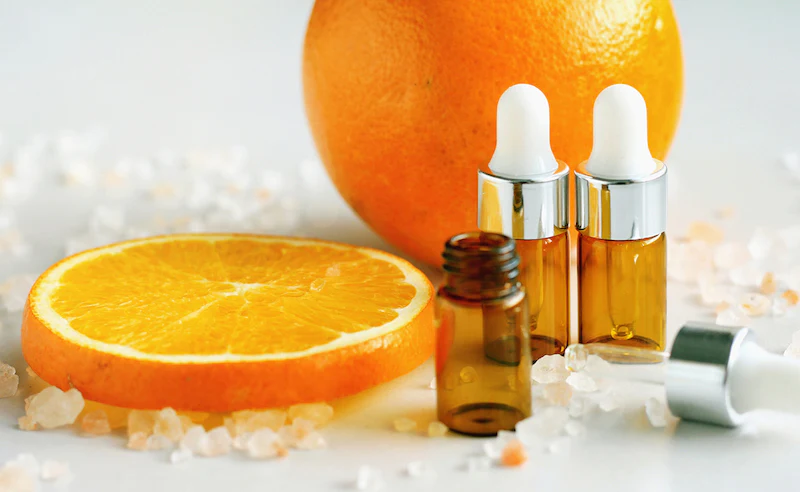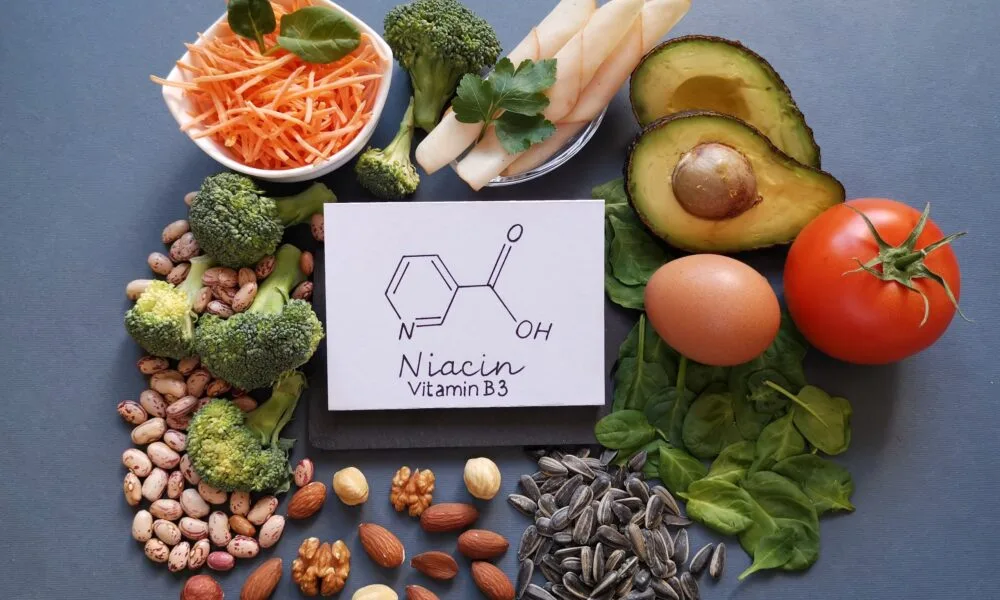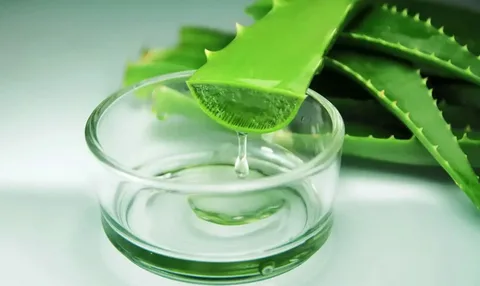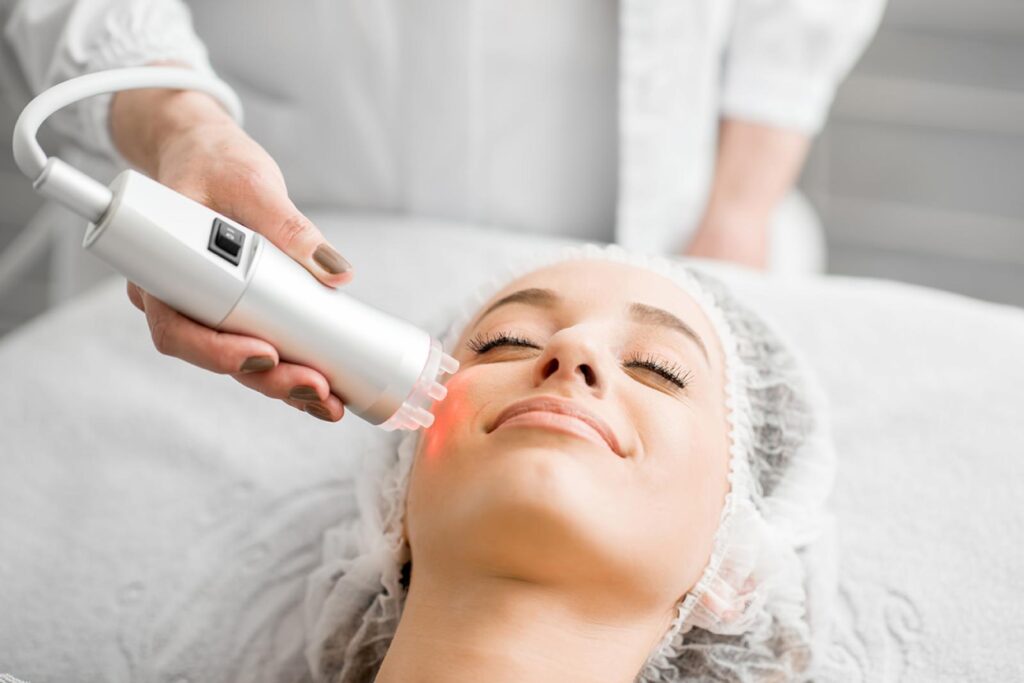Are dark spots dimming your natural glow? You’re not alone. Many people struggle with unwanted discoloration, whether it’s due to sun exposure, acne, or the natural aging process. But the good news is, there are proven methods to fade these pesky imperfections and reclaim your luminous complexion.
In this comprehensive guide, we’ll dive deep into the different types of dark spots, the most effective skincare ingredients and treatments, as well as easy home remedies and prevention tips. By the end, you’ll be armed with the knowledge to tackle your dark spots and achieve the even, radiant skin you desire.
Understanding the Causes and Types of Dark Spots
Dark spots, also known as hyperpigmentation, occur when there is an excess production of melanin the pigment responsible for skin color. This can happen for a variety of reasons, including:
- Sun Exposure: UV rays stimulate melanocytes (pigment producing cells) to go into overdrive, leading to the formation of sun spots or age spots.
- Acne and Inflammation: The healing process after a blemish can sometimes result in post inflammatory hyperpigmentation, leaving behind a stubborn dark mark.
- Hormonal Changes: Fluctuations in hormones, such as during pregnancy or with certain medications, can trigger increased melanin production.
- Aging: As we get older, skin cell turnover slows down, causing pigment to accumulate and form age spots.
While all of these dark spots may appear similar on the surface, it’s important to understand the different types in order to effectively treat them:
| Type of Dark Spot | Characteristics |
| Sun Spots | Flat, brown spots that typically appear on sun exposed areas like the face, hands, and arms. Often the result of cumulative sun damage over time. |
| Age Spots | Also known as liver spots, these are larger, darker spots that develop with age and prolonged sun exposure. |
| Post Inflammatory Hyperpigmentation | Discoloration that occurs after an injury or inflammation to the skin, such as acne, eczema, or even insect bites. |
| Melasma | Larger, more diffuse patches of discoloration, often triggered by hormonal changes or sun exposure. More common in women. |
Knowing the specific type of dark spots you’re dealing with will help guide the most effective treatment approach. Keep this information in mind as we explore the various solutions.
Harnessing the Power of Skincare Ingredients
When it comes to fading dark spots, certain active skincare ingredients are proven to be true powerhouses. Let’s take a closer look at some of the top contenders:
Vitamin C
Vitamin C is a superstar skincare routine, known for its ability to inhibit melanin production and even out skin tone. It works by interfering with the enzyme tyrosinase, which is responsible for melanin synthesis.
Look for stabilized forms of vitamin C like ascorbic acid, ascorbyl glucoside, or sodium ascorbyl phosphate for maximum efficacy.
Product Recommendation: SkinCeuticals C E Ferulic is a cult favorite vitamin C serum that combines the benefits of vitamin C with vitamin E and ferulic acid for a potent dark spot fading formula.
Retinoids
Retinoids, derived from vitamin A, are another key ingredient for treating hyperpigmentation. They work by increasing cell turnover and promoting collagen production, which helps to shed discolored surface cells and reveal brighter, more even toned skin.
Start with a lower concentration and build up tolerance to avoid irritation.
Product Recommendation: The Ordinary Retinol 0.5% in Squalane is a budget friendly retinol serum that is gentle enough for sensitive skin types.
Hydroquinone
Hydroquinone is considered the gold standard for treating stubborn dark spots. It works by inhibiting the production of melanin, effectively fading discoloration.
However, it’s important to use hydroquinone products with caution, as prolonged or improper use can lead to side effects like skin irritation or even paradoxical darkening.
Product Recommendation: Obagi Nuderm Clear is a high strength hydroquinone system formulated by dermatologists to safely and effectively treat stubborn hyperpigmentation.
Kojic Acid
Kojic acid is a natural skin lightening agent derived from fungi. It works similarly to hydroquinone, blocking the enzyme tyrosinase to inhibit melanin production.
Kojic acid is generally gentler on the skin than hydroquinone, making it a good option for those with sensitive complexions.
Product Recommendation: The Ordinary Kojic Acid Solution is an affordable, vegan friendly kojic acid serum that can help fade dark spots over time.
Niacinamide
Niacinamide, a form of vitamin B3, is another versatile ingredient for treating hyperpigmentation. It helps to regulate melanin production, visibly brighten the complexion, and improve skin’s overall texture and clarity.
Product Recommendation: The INKEY List Niacinamide Serum is a budget friendly option that can be easily incorporated into any skincare routine.
When using any of these potent ingredients, be sure to start with lower concentrations and gradually increase usage to allow your skin to acclimate.
It’s also essential to pair them with a broad spectrum sunscreen, as sun exposure can undo all your hard work. With consistent, long term use, you’ll start to see a noticeable improvement in the appearance of your dark spots.
Effective Home Remedies and Natural Treatments
While professional treatments and high tech skincare ingredients can be powerful tools, there are also several effective home remedies and natural solutions to consider for fading dark spots. Here are some options worth trying:
Lemon Juice
The citric acid in lemon juice acts as a natural skin lightener, helping to fade discoloration over time. Simply apply fresh lemon juice to dark spots using a cotton pad, let it sit for 10-15 minutes, then rinse. Be cautious with this method, as lemon can be drying and increase sun sensitivity.
Green Tea
Green tea is rich in antioxidants like EGCG that can help inhibit melanin production and brighten the complexion. Try applying cooled green tea bags or a green tea infused serum directly to dark spots.
Aloe Vera
Aloe vera is soothing, hydrating, and contains compounds that may help to reduce hyperpigmentation. Break open an aloe leaf and apply the fresh gel directly to dark spots, letting it absorb into the skin.
Turmeric
Turmeric is a powerful anti inflammatory spice that contains curcumin, a compound with skin lightening properties. Mix turmeric powder with a bit of water or honey to create a paste, then apply it to dark spots and let it dry before rinsing.
Licorice Root
Licorice root extract is a natural skin brightening ingredient that can help fade dark spots over time. You can find licorice infused serums or creams at many natural beauty retailers.
While these home remedies and natural treatments can be effective, it’s important to be patient, as they tend to work more gradually than prescription or professional treatments. Consistency is key when using these gentle, botanical based solutions.
Professional Treatments for Stubborn Dark Spots
For those dealing with more stubborn, deep seated dark spots, professional treatments can provide a more dramatic improvement. Here are some of the top in office options to consider:
Chemical Peels
Chemical peels use alpha hydroxy acids (AHAs) or beta hydroxy acids (BHAs) to exfoliate the top layers of the skin, revealing a brighter, more even complexion.
Deeper peels like glycolic acid or trichloroacetic acid (TCA) can be particularly effective for treating stubborn discoloration.
Laser Treatments
Laser therapies like Q switched lasers, picosecond lasers, and IPL (Intense Pulsed Light) target the melanin in dark spots, breaking it up so the body can naturally flush it out. These treatments often require a series of sessions for optimal results.
Microneedling
Microneedling uses tiny needles to create micro channels in the skin, which stimulates collagen production and cell turnover. This can help fade dark spots over time, especially when combined with targeted brightening serums.
Prescription Retinoid
For severe cases of hyperpigmentation, your dermatologist may prescribe a higher strength retinoid like tretinoin or adapalene. These can be even more potent than over the counter retinol for treating stubborn dark spots.
Hydroquinone Treatments
In office hydroquinone treatments, either in the form of a cream or an injectable, can provide more dramatic results for fading dark spots compared to over the counter hydroquinone products.
No matter which professional treatment you choose, it’s crucial to consult a board certified dermatologist who can assess your specific skin type and condition, and develop a customized plan to tackle your dark spots safely and effectively.
Preventing and Maintaining Even, Radiant Skin
While treating existing dark spots is important, it’s equally vital to focus on preventative measures to avoid future discoloration. Here are some key tips:
Protect Against Sun Damage
Sun exposure is the number one culprit behind dark spots, so daily sun protection is a must. Invest in a broad spectrum sunscreen with an SPF of 30 or higher, and reapply every 2 hours when spending time outdoors.
Exfoliate Regularly
Regular exfoliation, whether physical or chemical, can help slough off discolored surface cells and prevent the buildup of dead skin and excess pigment. Aim for 2-3 times per week, adjusting as needed for your skin type.
Incorporate Brightening Serums
Make vitamin C, niacinamide, or other skin brightening ingredients a regular part of your routine to maintain an even, radiant complexion. Apply these serums in the morning before sunscreen.
Avoid Picking at Blemishes
Resist the urge to pick or pop pimples, as this can lead to post inflammatory hyperpigmentation and worsen existing dark spots.
Manage Stress and Hormonal Fluctuations
Try to keep stress levels in check, as elevated cortisol can trigger excess melanin production. For hormonally driven dark spots like melasma, work with your healthcare provider to find ways to stabilize hormones.
By incorporating these preventative measures into your daily life, you’ll be able to better maintain the results of your dark spot treatment plan and keep your complexion looking its best.
FAQs
What is the fastest way to get rid of dark spots?
The fastest way to fade dark spots is typically through professional treatments like chemical peels, laser therapies, or prescription strength hydroquinone. These provide more dramatic and rapid results compared to at home remedies.
Can dark spots go away on their own?
In some cases, mild dark spots or discoloration can gradually fade on their own over time, especially if the underlying cause (such as a blemish or sun exposure) has been addressed. However, stubborn or deep seated dark spots often require active treatment to see significant improvement.
Is it possible to permanently remove dark spots?
While it’s possible to significantly fade the appearance of dark spots, truly permanent removal can be challenging. Dark spots may recur, especially if the original causes, like sun damage or hormonal changes, are not properly addressed and prevented.
How long does it take to get rid of dark spots?
The timeline for seeing results can vary depending on the treatment approach and the severity of the dark spots. Over the counter skincare products may take 4-12 weeks to show noticeable improvements, while professional treatments can provide more dramatic results in 2-6 months with consistent use.
Do dark spots mean I have a health problem?
In most cases, dark spots are a cosmetic issue and do not indicate an underlying health problem. However, certain types of hyperpigmentation, such as melasma, can sometimes be linked to hormonal imbalances or other medical conditions. If you have concerns, it’s best to consult a dermatologist.
Conclusion
In conclusion, getting rid of dark spots on the face requires a combination of prevention, treatment, and consistent skincare practices. First and foremost, protecting your skin from further sun damage by applying broad spectrum sunscreen daily is crucial.
Topical treatments like vitamin C, retinoids, niacinamide, and chemical exfoliants (such as AHAs and BHAs) can help fade dark spots over time by promoting cell turnover and reducing melanin production.
Additionally, natural remedies like aloe vera and licorice extract may offer some benefit, but results are typically slower. For more stubborn spots, professional treatments like chemical peels, laser therapy, or microdermabrasion might be effective options.
Patience is key, as dark spots take time to fade, and consistency with your skincare routine will lead to the best results. If the spots persist or worsen, it’s advisable to consult a dermatologist for personalized treatment advice.
